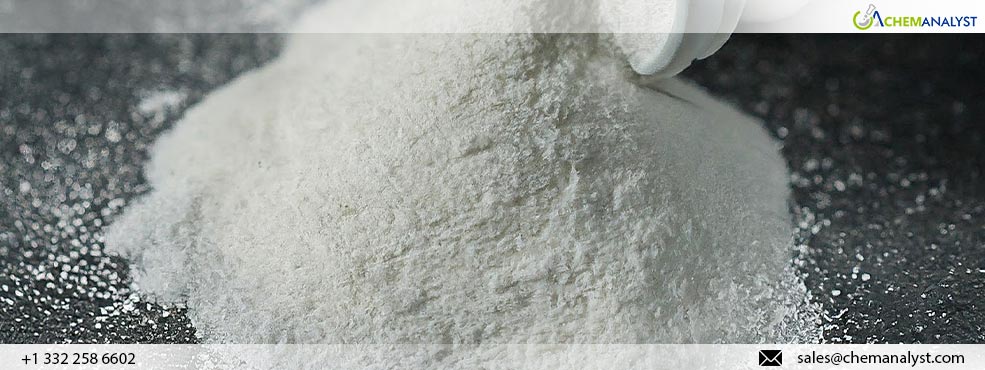Welcome To ChemAnalyst

Arginine prices in Europe have been on a downward trend since the start of June, and this is expected to persist throughout the month. This price drop is largely due to end users holding sufficient Arginine inventory, decreasing the need for new purchases. As a result, buyers have adopted a more cautious approach, leading to fewer market transactions and contributing to the overall decline in Arginine prices.
Recent data reveals an unexpected decline in China's manufacturing activity in May, with the official manufacturing purchasing managers' index (PMI) dropping to 49.5 from April's 50.4, as reported by the National Bureau of Statistics (NBS). This decline, marking a three-month low, came as a surprise following recent robust industrial activity data. The PMI fell significantly below market expectations, which had forecast an increase. The primary factors behind this month's decline were decreases in new orders and new export orders, both of which contracted after two months of expansion, supporting the downward trajectory of Arginine prices.
Given that China is a major exporter of Arginine, the European market is likely to experience a similar downward trend throughout the month.
The eurozone economy has grown faster than expected as it emerges from recession, though its growth remains modest compared to the strong performance of the US economy. The European Central Bank is anticipated to start reducing interest rates in the eurozone, which are currently at historically high levels. However, ongoing inflation suggests that this will not result in a rapid series of rate cuts. Preliminary data from Eurostat indicate that consumer prices in the eurozone rose by 2.6% year-on-year in May, up from 2.4% in April and surpassing the 2.5% forecast. This marks the first rise in the yearly inflation rate since December 2023. In Germany, consumer prices rose by 2.8%, in France by 2.7%, in Italy by 0.8%, and in Spain by 3.8%.
Persistent inflation continues to weigh on consumer sentiment, contributing to the decline in Arginine prices. Additionally, the depreciation of the euro against the USD at the beginning of June significantly impacted market pricing trends. This currency depreciation effectively raised the import costs of Arginine, making buyers hesitant to place new orders and further driving the downward trend in prices.
According to ChemAnalyst, Arginine prices are expected to continue declining in the upcoming months due to ample supply and reduced demand from end-consumers. Supply chain concerns amid the Red Sea crisis may prompt market participants to start replenishing their inventories as the new quarter approaches, leading to the clearance of old inventories at reduced rates and thereby reinforcing the declining trend in Arginine prices. Additionally, potential moderation in inflation in the eurozone could help reduce business costs, further contributing to the downward trajectory of Arginine.
We use cookies to deliver the best possible experience on our website. To learn more, visit our Privacy Policy. By continuing to use this site or by closing this box, you consent to our use of cookies. More info.
